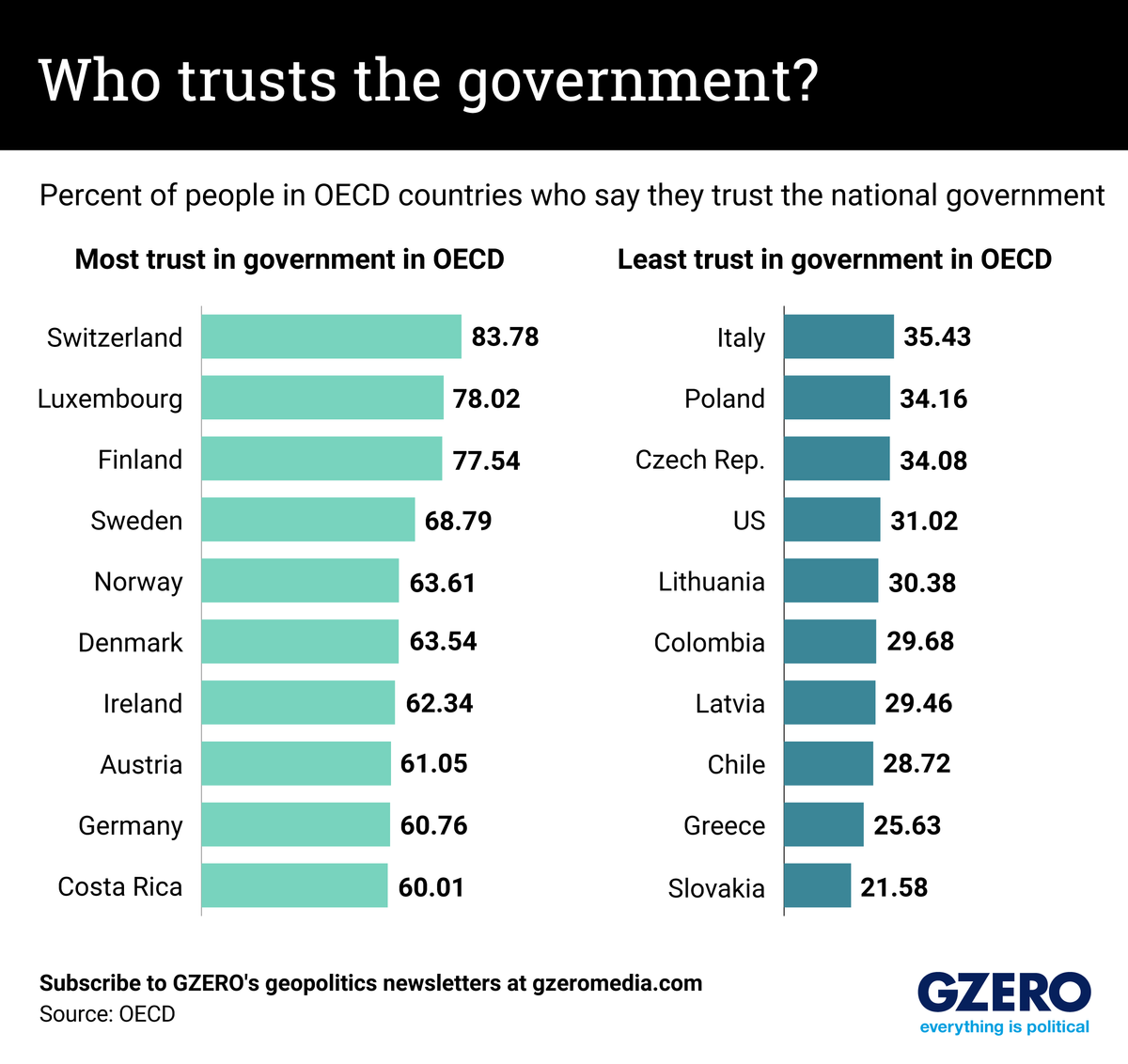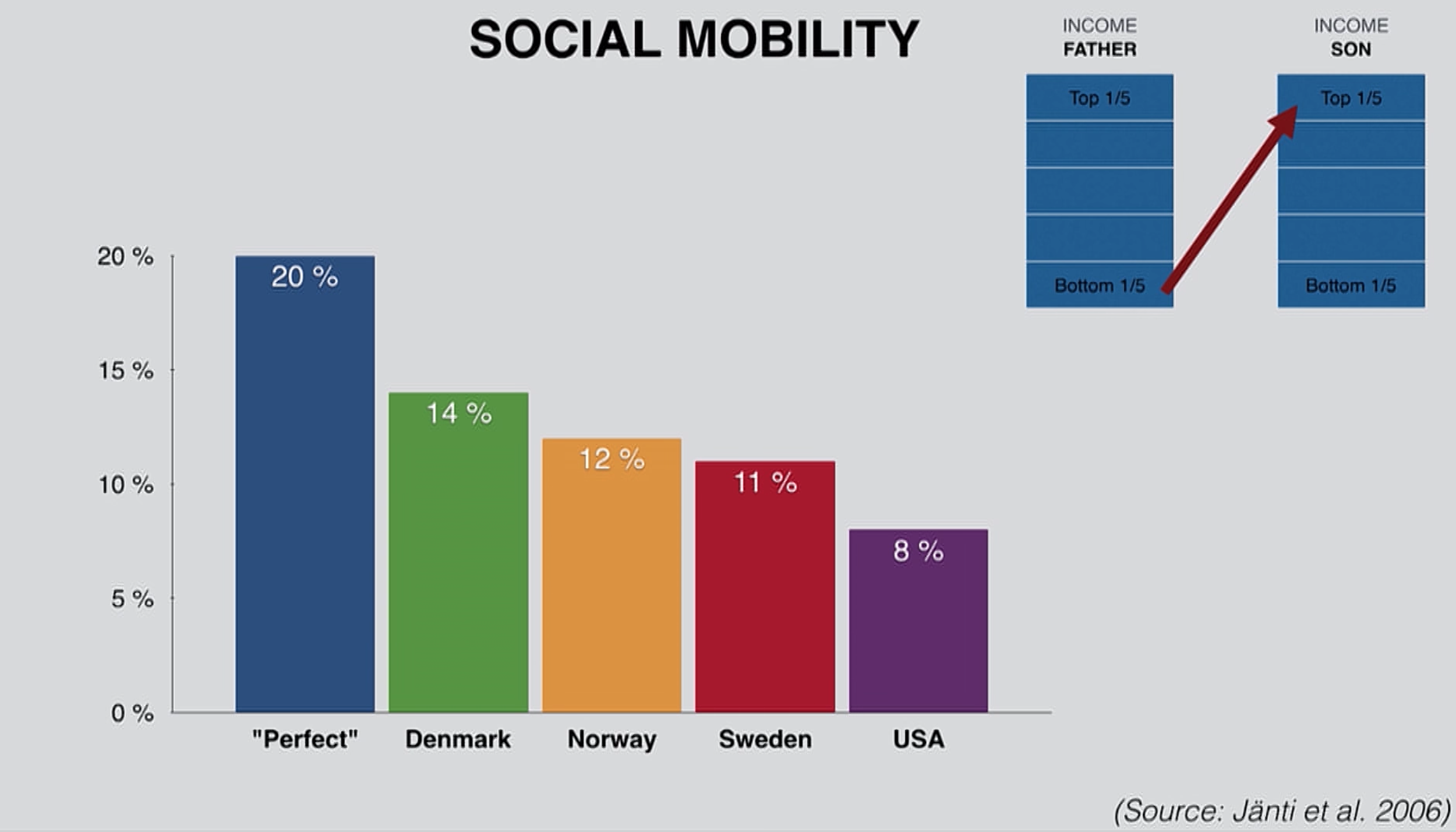UWSaint wrote: ↑Wed Mar 26, 2025 1:45 pm
Per wrote: ↑Wed Mar 26, 2025 12:40 pm
Our governments tend to do OK. I mean, I may have political disagreements with them, but they tend to be rather competent imho.
But then, almost any metrics you use, the Nordic countries tend to do surprisingly well, so maybe we’re not the norm.
(1) Why do you think that is?
(2) Do you think that will be the case in the future?
(3) Are you concerned about the decade+ lack of growth in GDP & per capita income in the Scandanavian countries and Europe more broadly, especially as compared to the United States?
(4) What do you think the United States did so well in the second Obama term, the first Trump term, and the Biden administration to outpace Europe (and Canada) in per capita income and GDP growth?
Do I think the Nordic countries will continue to do well? Yes. Yes, I do.
Now, I guess that might suffice as an answer. but I detect an implied questioning of this in your question, so I'll try to explain why I think so.
First of all, I think our systems are fairly robust. If you look at trust in government, as in almost any other metric, you find the Nordics way up the list, even though in this particular metric both Switzerland and Luxembourg (extremly stable countries) have us beat among the OECD countries:
 https://worldpopulationreview.com/count ... by-country
https://worldpopulationreview.com/count ... by-country
The only exception here is Iceland, with just over 51%, roughly on par with Canada, but even they are way above the 31% of Americans who have trust in their government.
You also see it in the misnamed Happiness Index, which really more is about being content than happy, but still. The Nordic countries hold places 1,2,3,4 and 7. I have no idea what the Norwegians are so grumpy about, but this year they got passed by both Israel (sic!) and the Netherlands.
https://worldpopulationreview.com/count ... -the-world
There is also the Gini coefficient, measuring income inequality. As you can see in the map income inequality is quite low in the Nordic countries.

Now, is that good or bad? People may have differing views on that, and I think we can all agree that it should pay off to work harder, but to which extent? And is Elon Musk really working hundreds of millions times harder than his employees? In general it can be observed that higher income inequality tends to lead to more crime. As long as people consider different outcomes fair, they are OK with it, but when they consider income distribution unfair, some people decide that they will not play by the rules.
But at the same time, the opportunity to get filthy rich is actually greater in the Nordic countries than in a libertarian haven as the USA. If you look at the percentage of children to the 20% with lowest income in a country that end up in the 20% with the highest income, you find that social mobility in the Nordic countries is very high. But of course, I find that quite logical considering that our universities do not charge tuition and that enrolling is strictly merit based. Your family name and fortune won't help you get a short cut.

And if you look at the number of USD billionaires per million inhabitants, Sweden has twice as many as the USA.
https://www.bbc.com/news/business-68927238
I truly recommend this article on the topic:
https://evonomics.com/where-in-the-worl ... -get-rich/
Some see it as odd that a country with a cradle to grave social safety net and 50% marginal tax rate would have as many start-ups as we do, but it actually makes sense. If you have an idea for a company or an app or whatever, you can usually take a leave of absence for 6 months or a year. Sure, your employer must approve it, but they usually do. So you can try out your ideas, and if you realize it doesn't work out, you just go back to your old job. What is the worst thing that can happen? Not much. So instead of the social welfare state encouraging laziness, it actually encourages people to go chase that dream, and if it doesn't pan out, just go back to work like it never happened. And with even poor people having access to university level education, we make better use of the potential in people. Also, in the 1990's employers were encouraged to offer subsidized home computers to their employees, and we early on decided that broadband was an essential service, like water, sewage and electricity, that all households should have access to. Thus computer literacy throughout Scandinavia is sky high. When the Finnish IT-developer Linus Thorvalds (Linux) moved from Helsinki to Silicon Valley, he complained about how crappy his internet connection was there...
Sweden is the birthplace of IKEA, H&M, Spotify, Klarna, Skype, Minecraft, Candy Crush. And we're the second largest exporter of Music, behind the USA. Of course we also have more traditional companies like Volvo, Scania, Sandvik, AtlasCopco, TetraPak, etc, but computer games actually account for more export revenue than cars these days. And Microsoft paid about ten times more for Minecraft than Geely did for Volvo.
A system that ensures education, free meals at school, subsidized daycare, healthcare and a social safety nets are available to everyone creates people who are generally content with life and feel that they have a fair opportunity to pursue happiness without ever having to risk everything you have. Thus generating stability in the system.
Anyway. I understood that you earlier pondered about the effects of immigration? I would say that they are mainly positive. Roughly 20 percent of Swedes (2.2 million) were born abroad, but 0.6 million of those were from other Nordic countries and another 0.5 million from other European countries, the Americas and Oceania. Then there's 0.85 million from Asia and 0.25 million from Africa. These 10% contain people with different cultural backgrounds, and sometimes you see claims that Sweden has 500 million or even 1 million Muslims now, which is bullshit. Those figures are based on country of origin, but many of those that have come from the Middle East to Sweden were fleeing persecution from Islamist governments and organisations. Thus a large part of the immigrants from Muslim countries are atheist, Christian, Bahaï, Mandaen, etc. We actually have the largest Mandaen population in the world, some 20,000 people. They are followers of John the Baptist, just like Jesus was before he started his own breakaway cult. And we have a large and thriving group of Christian Arabs in Södertälje, a city that took in more Syrian refugees than all of the USA did. The two guys we talkked about before, who had a penchant for burning qurans, belonged to that group. Our laws ban the keeping of registers of ethnicity or religion, in part based on nazi groups making lists of Jews that they planned to hand over to the Germans in case they invaded. Thus we do not have truly reliable statistics, but in polls the response given gives at hand that roughly 32% of adult Swedes have no religion, 65% consider themselves Christian, 1% are Muslims and 0.3% are Jews and 1.7% belong to other religions. This would give a rough figure of some 80,000 adult Muslims. Now, Muslim congregations in Sweden report a total membership of 270,000 members. The difference can be explained by a number of factors. The congregations probably include children, and there are some 830,000 residents in Sweden that do not have citizenship. Now, the majority of these, close to 60%, are other Europeans (remember that we have free mobility within the EU). But there are some 300,000 from Asia or Africa, and some of these may be members of congregations as well. So the true amount of Muslims in Sweden would probably be somewhere around 300,000 or less than 3% of the population. Also, of those who claimed to be Muslim in the poll, only 13% considered themselves devout. Many of the Bosnians that came here during the war in Yugoslavia will attend weddings and funerals in the mosque but drink alcohol and do not worry to much about other religious restrictions either. I have two Muslim collegues, and they do avoid pork though. As does the Jewish girl who also works in the office.
Sure, a mass event like the Syrian refugee crisis in 2014 does cause some strain, it's hard to find housing, employment, etc, for everyone when so many arrive at once. There is also a problem that in areas with poor integration, immigrant youth can easily be recruited by gangs. There has been an increase in gang related violence in recent years, and most gang members have immigrant background, but even though gun violence has risen, so that Sweden has the most shootings per capita in Western Europe, you have to realize that shootings are exceptionally rare in Western Europe, so it doesn't take much to earn that honour. We have roughly 60 gun homicides per year (what's that, a regular Tuesday in Detroit?), a total of roughly 120 homicides per year. 121 in 2023, which gives us a 1.147 homicide rate per 100,000 inhabitants, which is on par with the UK, lower than France, half of what Canada has (2.273) and less than a fifth of the US murder rate (5.763). So it is all blown out of proportion. This has two major causes; the right wing Sweden Democrats' fear peddling to attract voters on anti-immigrant sentiments and Russian desinformation trying to depict Sweden as a failed and decadent society. They partly go hand in hand, with Sweden Democrats often repeating Russian desinformation and Russian government controlled media often interviewing Sweden Democrats, and (at least earlier) helping finance their organisation, as they do with extreme right wing parties throughout the European Union. In reality there are at least 20 immigrants working in healthcare alone for every immigrant gang member. I've seen some figure before that some 99% of native Swedes will never be arrested for a violent crime, and the same holds true for 98% of immigrants. So if you want to spin it, you could say that immigrants are twice as likely to commit violent crime, but I think that is a very dishonest presentation of the statistics. The truth is that most people, regardless of background, are pretty decent. And if you treat someone with respect they will usually respond in kind.
Anyway, the vast majority of second generation immigrants are fully integrated. A study on social norms and attitudes showed that when polled on gender equality, second generation Muslims in Sweden had attitudes that were closer to their Swedish class mates than to those of their parents. And albeit there was a slight difference between native Swedes and second generation immigrants, that difference was less pronounced than the difference between Swedes and Brits.
Thus I feel safe in my conviction that the stability and relative success of Nordic countries will continue.
See if I can get around to answer the other two questions this weekend, and perhaps comment on your answer to my first post as well.


